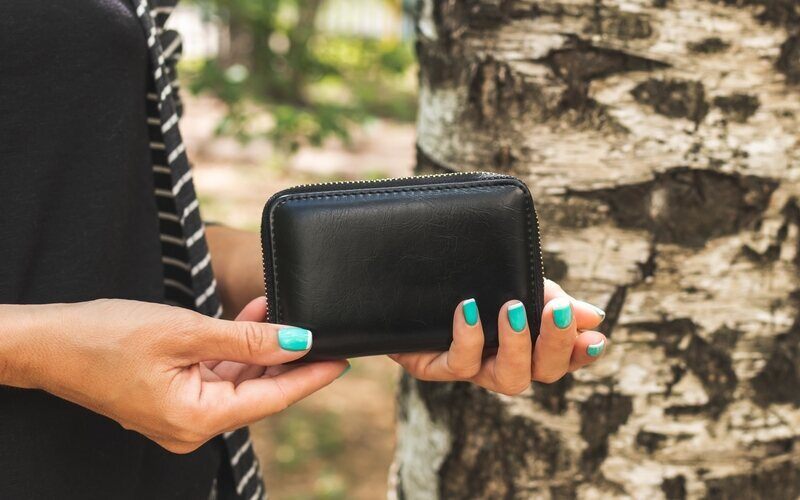Maybe not so much that last one. Even though your twenties are the time for making mistakes (and learning from them) financial mistakes are a bit harder to recover from than that time you bought a king size bed from IKEA only to get it home… and realise it doesn’t actually fit in your bedroom. Oops.
Millennials and money
Not all millennials are good with money. Some of us get a little bit too happy on Afterpay. Some of us spend $500 at the hairdresser. Then there’s rosé and dresses from Zara.
Some of us do all these things (ahem, guilty).
There’s so much conflicting advice out there about what millennials should be doing and how they should (or shouldn’t) be spending their money. Throw it all into a high interest savings account? Buy a few shares and hope for the best? Rent forever? Save up for a house deposit? Or live in your parent’s basement until you’re fifty hundred years old because you can’t get into the housing market?
It’s enough to give you a rosé-inspired headache.
So to cut through it all, here are all the money mistakes millennials make – and how to avoid them.
1. Emergency fund? What emergency fund?
It’s smooth sailing right now – you’ve paid off your car loan, you have regular weekends away, you’ve got a great inner city apartment, and you’ve got just enough left over to fund your soy latte and Netflix addiction. But to quote Murphy’s Law, “anything that can go wrong, will go wrong”.
It could be a car accident, an unexpected medical bill, your washing machine breaks, or god forbid – you lose your job or your relationship ends and you’ve got to find somewhere else to live STAT. Whatever it is, if you haven’t got a stash of funds squirrelled away for an emergency, you can be sure the you know what will hit the fan.
This kind of situation would probably be enough to financially break most twenty-somethings – but not you because you’re going to set up an emergency fund and avoid that situation altogether.
You should aim to have at least three to six months of living costs of emergency funds – that’s enough to immediately cover you if you lose your job.
To get started, read our article on emergency funds and how to set one up.
2. Not consolidating your super
Confession: I am a twenty-something who has not consolidated her super. I’m the kind of person who ticks the ’employer-nominated fund’ box every time I start a new job. There’s no doubt I’ve got multiple superannuation funds out there incurring fees while I remain blissfully ignorant. I don’t even know how much superannuation I have.
Yes, I’m lazy. Yes, I’m a big fat hypocrite for telling you to get your superannuation sorted. But I’m not alone. According to the Australian Taxation Office, more than nine million people, or 39% of the workforce, have multiple superannuation accounts.
Former CEO of Association of Superannuation Funds Australia (ASFA) Ms Pauline Vamos said, “Every dollar you save on unnecessary fees, or every dollar of lost super you find, is worth seven times more to your retirement savings. Every day your super stays lost, or every day you pay fees on an unnecessary amount, is a day you are losing valuable retirement money”.
If that’s not motivation enough for you to get on top of your super, I don’t know what is.
Consolidating your super is actually pretty simple. Many providers have a tool on their website that helps you, but MyGov also has a tool that aims to track down all your lost super for you. All you have to do is create an account, enter your Tax File Number, add some security questions, and the tool will conduct a search for you.
Here’s a video from MyGov that explains it all for you.
3. Buying a car you can’t afford
We’d all love to drive a Ferrari but there’s a reason most of us don’t and it’s because we’re unfortunately not made of money. Admittedly, most twenty something’s aren’t out there buying Ferrari’s (and if you are, I’m in the market for a new car please) but some of us are falling into the trap of buying more car than what we can actually afford.
New car manufacturers would love for you to believe you can’t go without their latest model and all the optional extras like paint protection. After all, they’re salesmen. Swindling you into buying things you don’t need is like, 98% of the job description.
But new cars depreciate very quickly – in fact, that brand new car you’ve just bought has already lost 11% of its value by the time you drive it out of the dealership.
When you’re in your twenties, you probably don’t need a brand new car. Most people will go their entire lives only ever having owned second-hand cars. And there’s nothing wrong with that, because second-hand cars offer better value for money than a brand new one – provided you do your research.
There’s a lot to consider, so read our articles on everything you need to know about used cars, and the pros and cons of buying one from a private seller versus a dealer.
4. Not saving
Saving money is one of those things we know we should be doing, but not many of us actually do it. It’s like going to the gym, or drinking green smoothies. We know it’s good for us but we’d rather just stay in bed/eat our body weight in chips, or in this case, spend all the money.
It comes down to mindset. When most people approach budgeting or saving they think about it in terms of what they’re missing out on as opposed to what they’re gaining.
It also helps if you have something specific you’re saving up for, whether it’s a house deposit, your wedding, or a six-month holiday in Europe. Rename your savings account accordingly (first home, dream wedding, Europe trip, etc). That way, you’ll be less tempted to dip into your savings because you’re taking money away from that savings goal. Let’s say that Friday night is always the night you order Uber Eats. Skip that meal and think about using that $30 for a meal in Europe instead.
The other aspect of saving is to make it easy for yourself. Set up automation so the money is coming in on payday and going straight into your savings – and not getting caught up in lifestyle spending. And don’t dip into it!
5. Living without a budget
How many of you are awkwardly twiddling your thumbs right now?
We thought so.
Yes, budgets sound boring and the idea of sitting down with an Excel spreadsheet is enough to put you to sleep. But budgeting isn’t just about staying on top of bills – it’s about building good habits that will help you as you age (such as saving for your retirement).
Start with baby steps. Make a list of all your monthly expenses. Think rent, bills, groceries, and any subscriptions or other outgoing expenses you may have, like gym memberships or your Netflix subscription.
Once you’ve got a clear idea of how much you’re spending in a typical month, you can identify any problem areas you may have. For example, you may have a habit of spending lots of money on Uber or on clothes from The Iconic like this Savings.com.au journalist…
Here are some of the best budgeting and saving apps that will keep you on track to meet your savings goals.
6. Accumulating credit card debt
Credit cards aren’t the devil (despite how often they’re referred to as exactly that). It’s how you use them that counts.
They also aren’t free money or a bottomless pit of funds, and they definitely shouldn’t be used for large purchases like an overseas holiday or your house deposit. Your hard-earned savings should be used for those big purchases instead.
Another thing to be wary of when it comes to credit cards is monthly repayments. When your bank sends you your monthly loan or credit card statement, it will outline the minimum repayment that is due. But what a lot of people don’t know is that this is a tactic employed by the banks to keep you as a customer (paying high interest) for as long as possible.
Even though meeting the minimum repayments each month doesn’t seem so bad, it does mean it will take the longest possible time to repay that debt. So instead of meeting the bare minimum repayments every month, pay a little bit extra each month to get rid of your debt faster.
7. Not having the money talk with your partner
Talking to your partner about money can be pretty uncomfortable – especially if it’s still early days. But having the money chat early on can save you a lot of finance-related issues down the track.
I’m not saying you should talk about how much you have in your savings account or how much debt you have on your first date, but it is important to consider financial compatibility in a partner. If you’re a diligent saver and your partner is a bit too happy with the old credit card, you can assume it will lead to some tension down the track.
It’s important to make sure your partner is on board with your money moves so that you’re not led astray. If you’re in a serious relationship that you intend to be in for years to come, sit down and figure out how to best save for your future together.
Some good questions to ask your partner are:
- What does financial security look like for you?
- What are your financial goals?
- Do you prefer the idea of split or joint finances?
- Do you have any debt?
If the relationship is still fairly new, you can suggest saving up for something together, like a weekend away or festival tickets, as that will give you an idea of their attitudes towards saving.
8. Or rushing into sharing finances
If you’ve been coupled up for a while, chances are you already have (or are thinking about) sharing finances. After all, sharing is caring, right?
There’s nothing wrong with sharing finances, but opening up a joint account is a decision that definitely should not be made on the spur of the moment. There’s a lot to consider: do you trust your partner with a card that’s linked to your hard-earned savings? Is your relationship even ready for that level of commitment yet?
Marriages and relationships have fallen apart because one person siphoned all the money and ran away, or refused to give it back. Or, on a slightly less dramatic note, one person in the relationship is diligently saving up for something and then the other goes and blows hundreds of dollars on clothes.
That’s not to say sharing finances is bad, just that it’s a decision to really think about.
9. Not saving for your retirement
When you’re in your twenties, retirement seems a long way off. Having the mentality of “I’ll worry about it later” is going to set you up for disaster when you’re older. If you think you’re too young to start saving, think again. The sooner you start, the more you’ll have.
Relying on your employer’s super contributions and the Age Pension to support you later in life could easily leave you without enough for a comfortable retirement.

Your retirement could look like this if you start saving now. Photo by Dominik Lange on Unsplash
Fidelity International and Morgan Stanley recommend having your yearly income saved by the time you’re 30, three times your salary by the age of 40, six times at 50, eight times at 60, and ten times by 67.
For most people, those numbers just aren’t feasible. A 2014 study found that most people in their 30’s, 40’s and 50’s don’t even have retirement savings. That’s actually terrifying to think about.
Perhaps a better way to think about retirement savings isn’t in terms of your current salary, but what your expenses are and what they will be once you retire. Do you want to maintain your current lifestyle? Live more frugally? Travel the world? Will you downsize or keep working?
You can ask your employer to direct a portion of your salary into your super fund. This is what’s known as salary sacrificing.
10. Falling back on retail therapy when you’re feeling down
We’ve all been there – something is going wrong at work so you go and get yourself a coffee to make yourself feel better. Or your date is a no show so you treat yourself by spending lots of money on clothes by rationalising that you deserve it, after all.
But if you get into the habit of buying something to make yourself feel better every single time something stressful happens, you’re setting yourself up for terrible financial habits. Plus, it’s just a really unhealthy coping mechanism.
Buying something impulsively in the heat of the moment may feel great, but it’s a short-lived feeling. Note to self: not every purchase is a good one ($180 t-shirt I’ve worn a grand total of twice, I’m looking at you).
11. Quitting your job after a bad day
We’ve all had days at work where it feels like nothing is going right and the temptation to walk out is strong.
If you’re planning on quitting your job, it’s wise to have something else lined up before you give your marching orders – otherwise it could be months before you find something else.
12. Not negotiating salary
If it’s your current pay cheque that’s making you miserable at work, consider whether you’ve earned a pay rise and how you might ask for one.
One of the most common mistakes people make is not negotiating their salary offer. But by not doing so, you’re leaving money on the table. Countless studies have shown that people who don’t negotiate their salaries tend to end up earning less than those who do over the course of their career.
13. Not being financially literate
What’s an ETF I hear you ask? A term deposit? Compound interest? Huh?
Life in your twenties means yelling “treat yo’self” and then regretting it for days after. We’ve all been there. But who can blame us when we were never taught how to do our taxes, navigate a super fund or set up a budget in school when we were learning about algebra instead?
And if like mine, your family also didn’t talk about money or teach you about finances, you’re going to have to teach yourself.
Thankfully there are a ton of resources out there (like this website!) that simplify complex financial terms into easy to understand language for the everyday person.
14. Keeping up with Instagram culture
Trying to live up to the people you see on Instagram can be tempting. Buying the same clothes or decorating your apartment with expensive homewares are all detrimental to your finances. If you can’t afford it, you shouldn’t buy it. Full stop. Just because you see other people enjoying a certain level of a lifestyle doesn’t mean you can, or that you should do the same.
15. Borrowing money
When you’re in a financial pickle, you may be tempted to ask a friend for a hand-out, but it could put a strain on the friendship – especially if you make it a habit.
Your mate may need the money back before you can repay it. They might judge your spending habits or even worse, cut you off completely if you don’t pay them back on time (or at all).
16. Pursuing higher education without having a plan
It’s important to think about our HECS debt while we’re accruing it – not just while we’re paying it off.

Photo by Juan Ramos on Unsplash
University subjects are expensive. They can cost thousands of dollars each, so pay attention to course cut off dates if you’re not enjoying it.
Even though it’s debt you’re currently accruing, it should be giving you opportunities in your career, which will help you earn more over the course of your career.
It’s also worth asking yourself if you actually need tertiary qualifications for the kind of career you want – or whether you’re just passing the time at uni because you’ve got no idea what you want to do yet.
The average uni debt for a student in Australia is about $20,000 – which is a lot of debt to accrue for a degree you’ll never use.
17. Choosing a savings account with a low interest rate
Until very recently, all my hard earned savings were stashed away in a savings account with a teeny tiny interest rate.
My parents had set up the account for me when I was twelve. It had never occurred to me to switch banks, because I had no idea about interest rates, let alone why it was important to have a high interest savings account.
In the simplest terms, the higher the interest rate is, the more interest you earn back on your money – which will grow your savings faster. A good rule of thumb to keep in mind with savings accounts is to look for a rate that is higher than the CPI inflation rate. This number is always changing, so check the Reserve Bank of Australia’s page. If you’re not earning interest above this, then the value of your money will essentially go backwards over time.
18. Falling into the trap of lifestyle inflation
You get a pay rise, or maybe a new job and your salary increases – and so do your lifestyle expenses. This is called lifestyle inflation and it usually happens so gradually that you don’t even notice until it’s too late and your bank balance looks exactly the same as it did before your salary increased.
Lifestyle inflation is a very common trap to fall into once you start earning more, and it’s very quick to adjust to a higher pay. Before you know it, you’re buying better wine, getting Ubers instead of catching the bus, doing your grocery shopping at expensive health food stores instead of at Aldi…you get the picture.
Instead, think of your pay rise as having bonus funds to put towards something that will benefit you in the future instead of using it to benefit you right now.
19. Overspending on rent
Your rent shouldn’t exceed 30% of your monthly take home pay. That’s because housing is generally regarded as being affordable when a household spends no more than 30% of their income to pay for it.
When I was looking for a rental, I found a really nice inner city apartment that was on the 40th floor. The views from the bedroom were insane – and so was the weekly rent. I really wanted the place, but deep down I knew that I just couldn’t justify paying such an astronomical amount when there were plenty of budget-friendly (and equally as nice) options out there.
I did end up finding an apartment that was just as nice (granted, the views from the bedroom are far less panoramic) but it’s a lot cheaper – and my wallet is much better off for it.
Just because you can spend a massive amount of money for a place you really, really like doesn’t mean you should. Besides, do you really want to spend all your money on rent and not have anything left over for all the things you actually enjoy doing, like going to dinners out or travelling?
20. Not investing
Saving money is important, but very few twenty-somethings understand the importance of investing. The earlier you get started in the market, the better.
Experts always say it’s “time in the market” not “timing the market” that brings the biggest gains. The sooner you start, the more you’ll end up with in the long run.
If the idea of buying and selling shares terrifies you, start small. Apps like Raiz are perfect if you’re an investment newbie.
Savings.com.au’s two cents
Your twenties are the one time in your life when making mistakes is pretty much expected of you – yes, even financial ones.
So even if you’ve found yourself nodding along with pretty much every single point on this list, the most important thing to take away from this is that you learn from your mistakes – and that you don’t wind up repeating them.

Ready, Set, Buy!
Learn everything you need to know about buying property – from choosing the right property and home loan, to the purchasing process, tips to save money and more!
With bonus Q&A sheet and Crossword!



 Emma Duffy
Emma Duffy
 Aaron Bell
Aaron Bell













